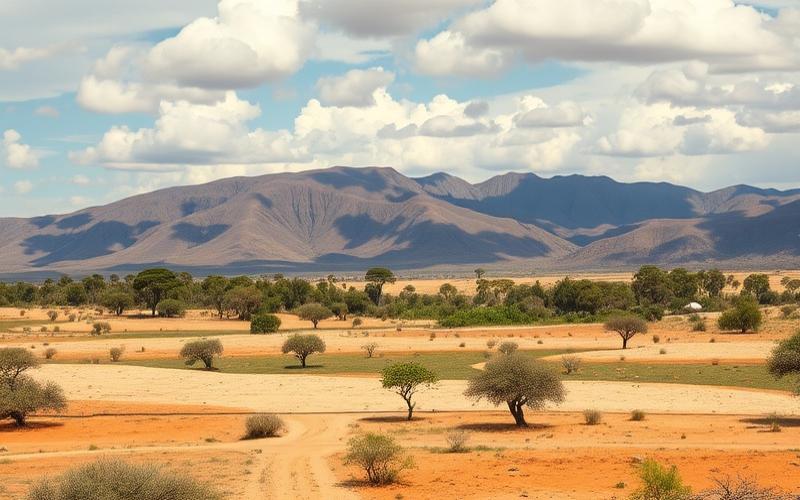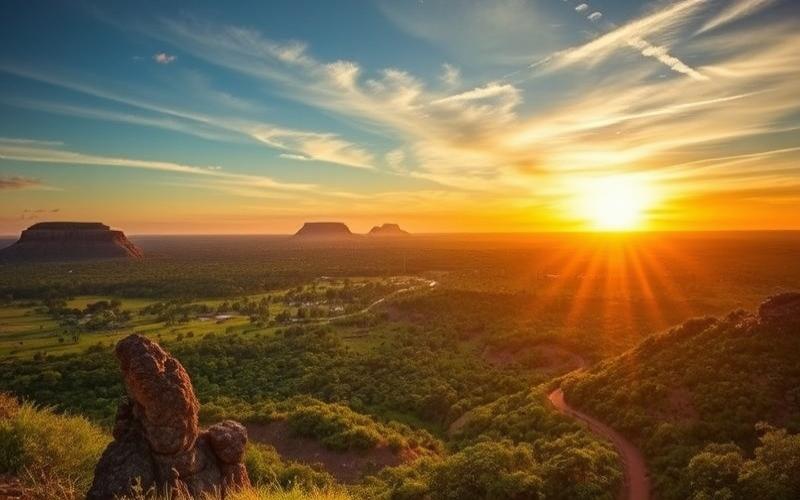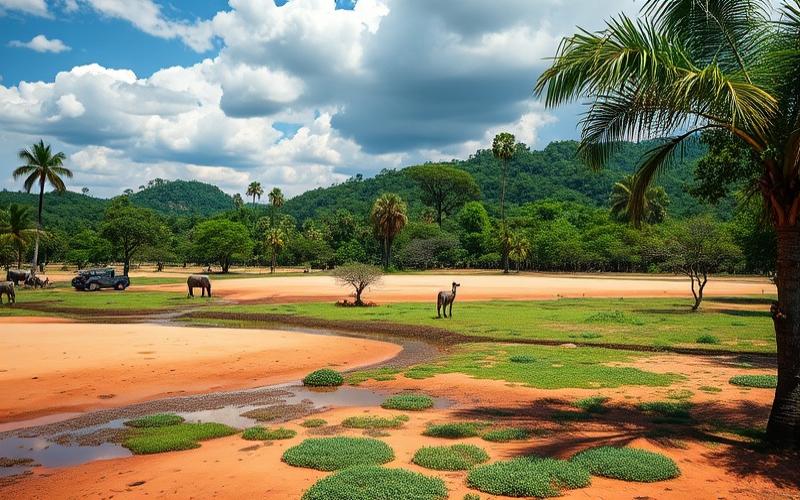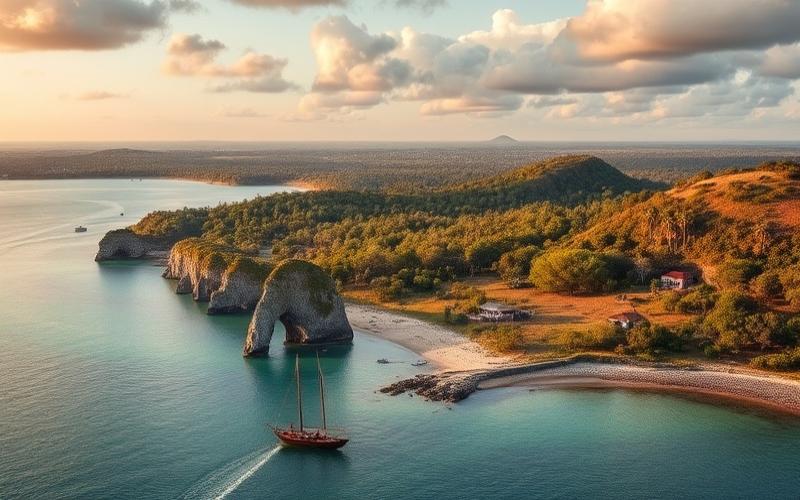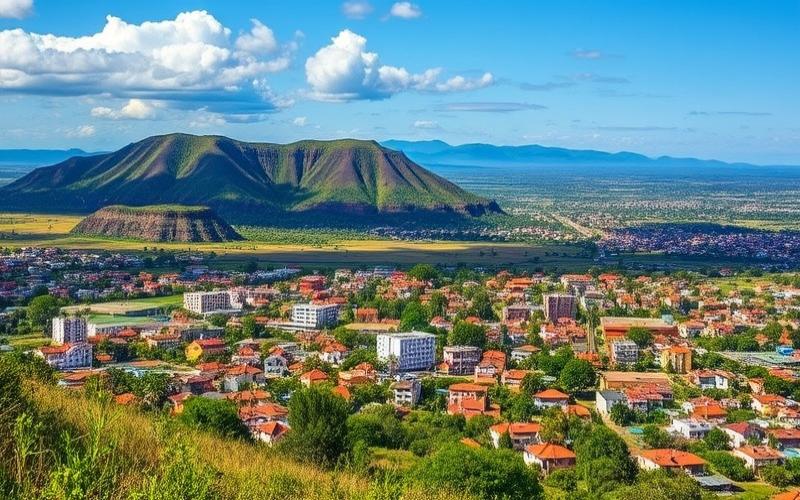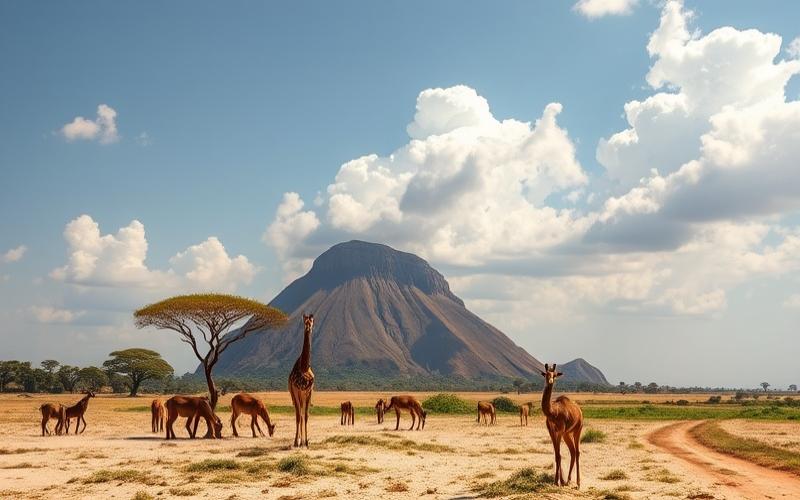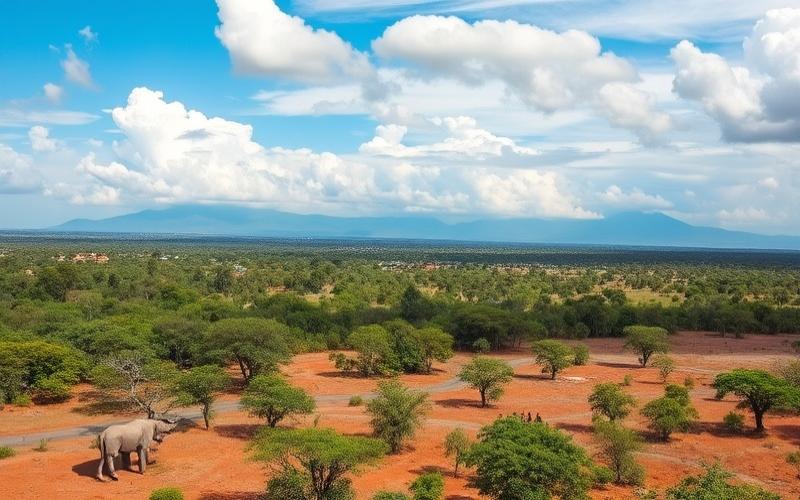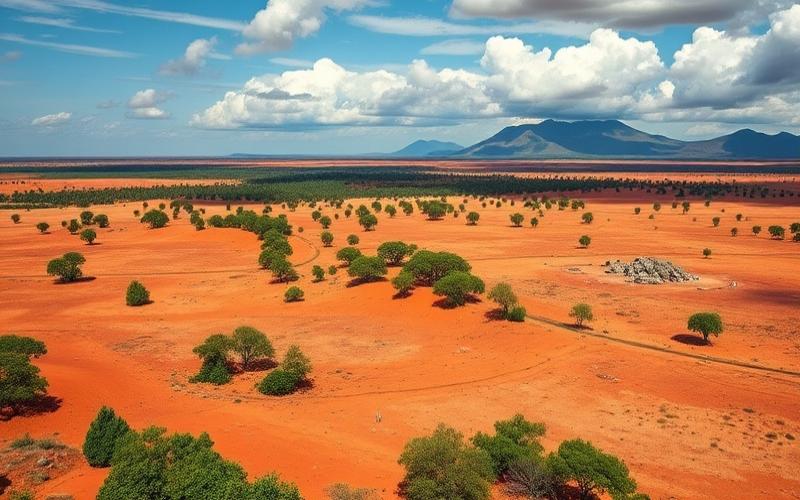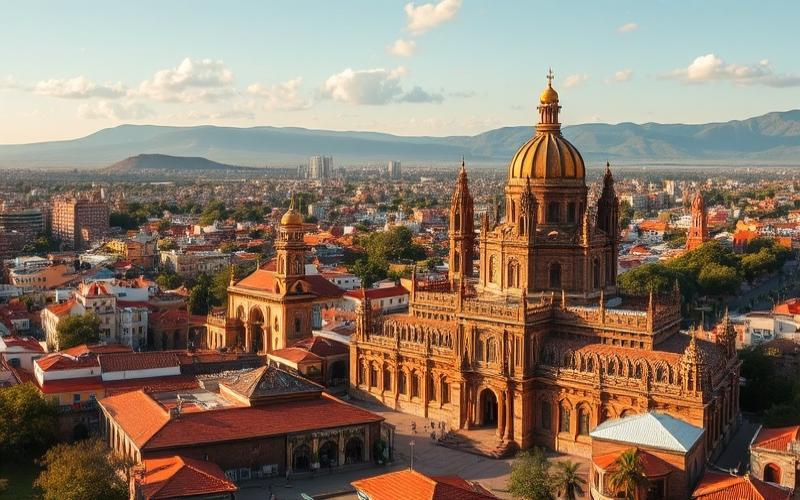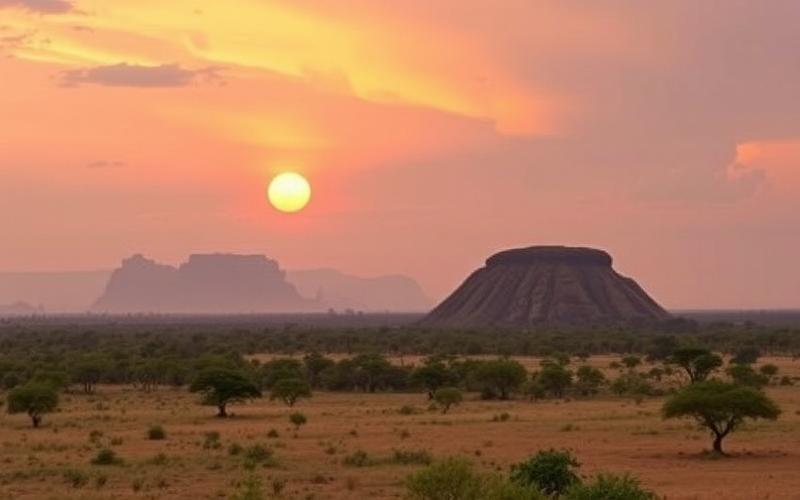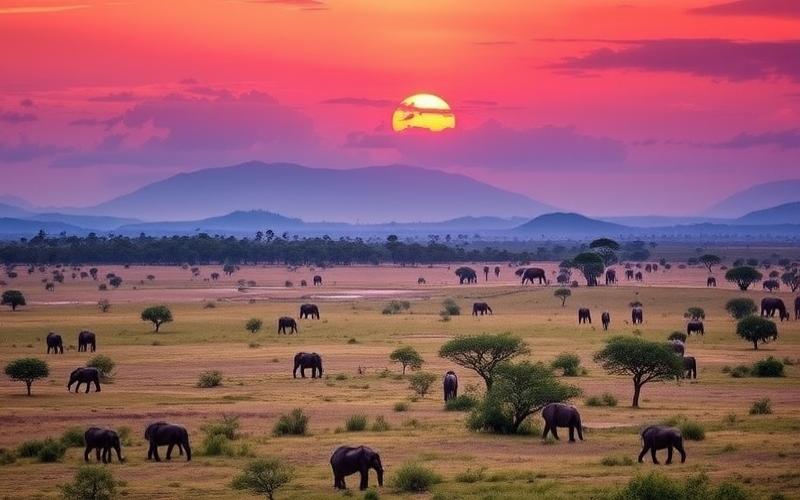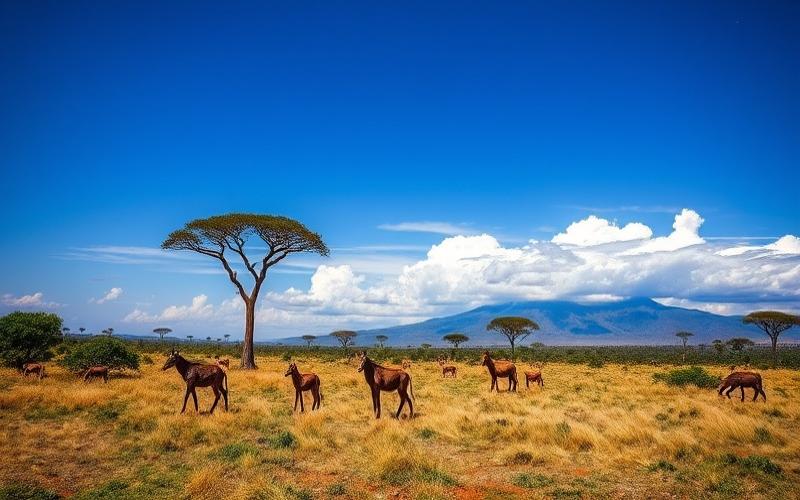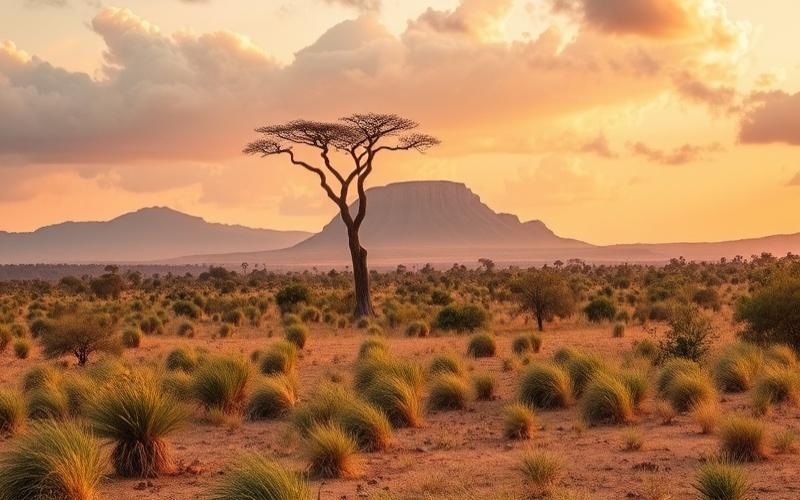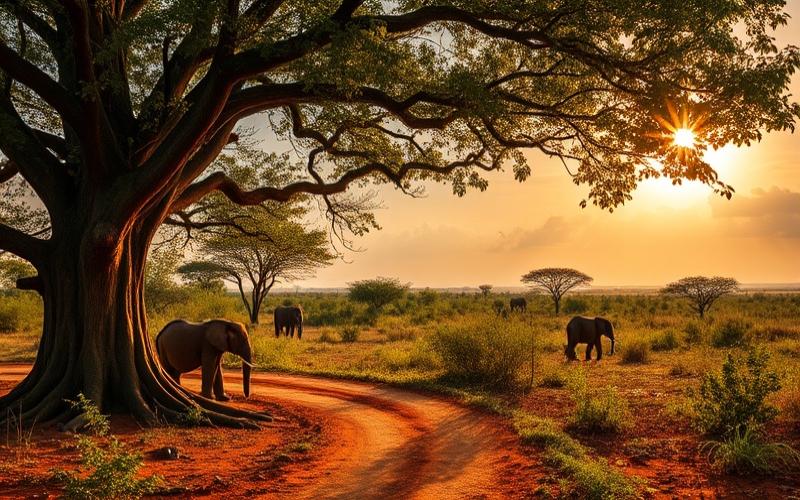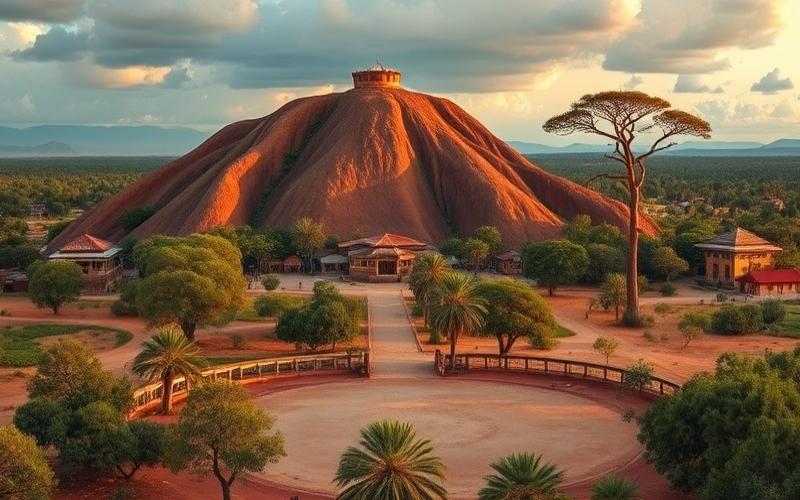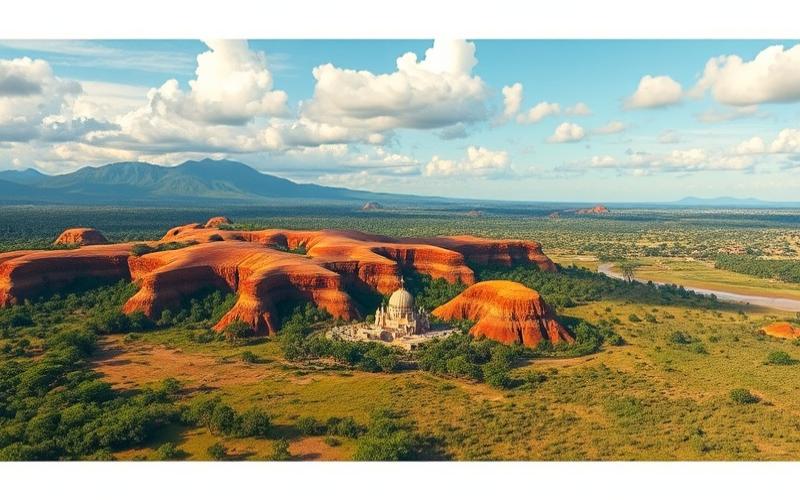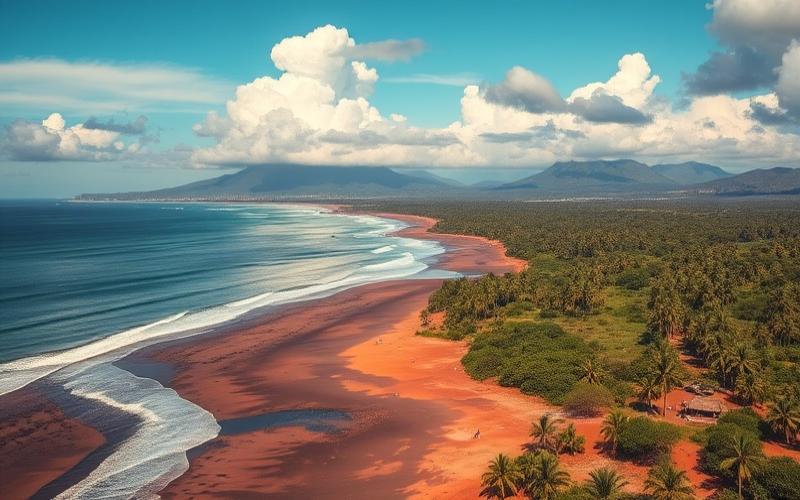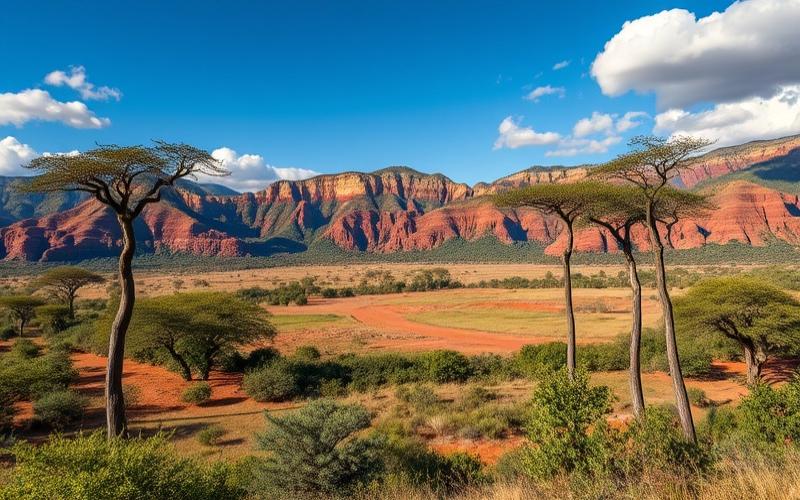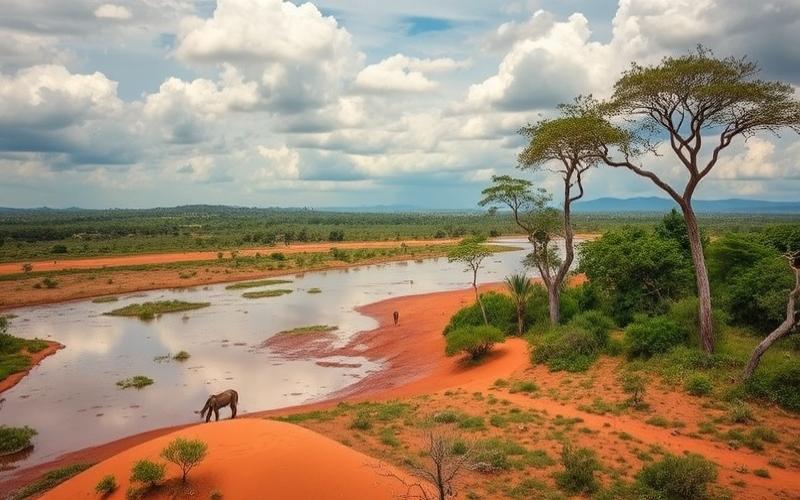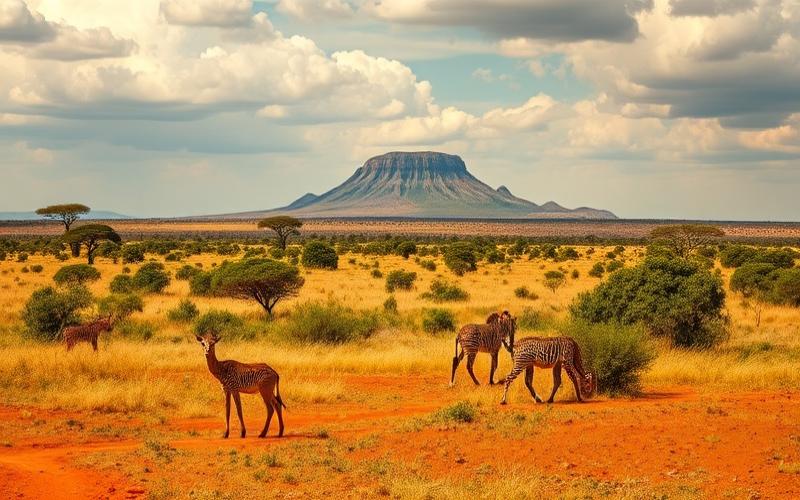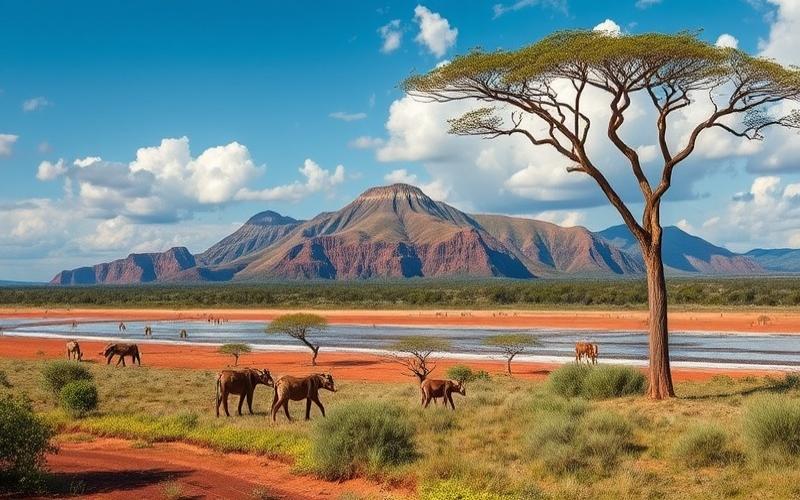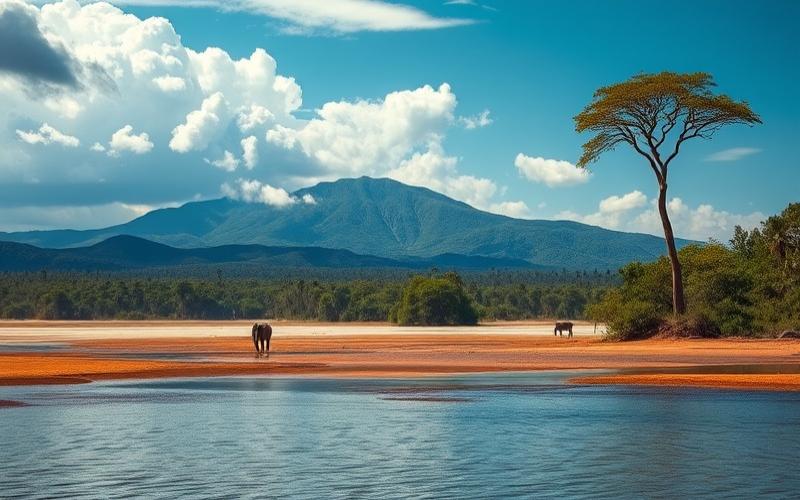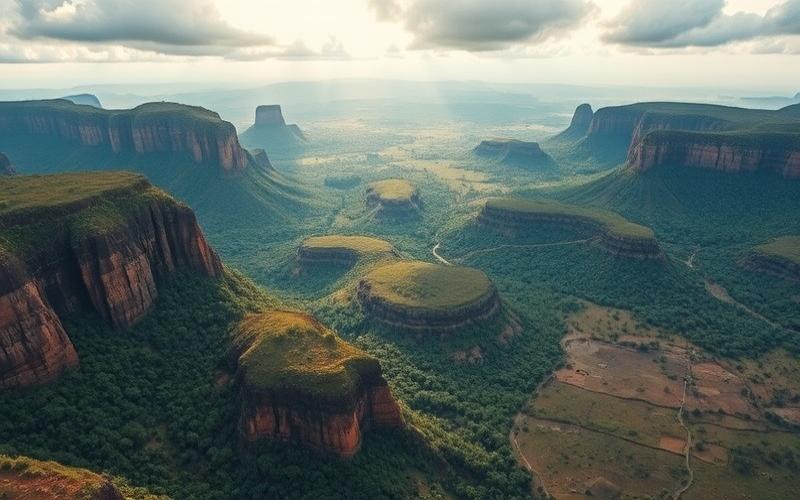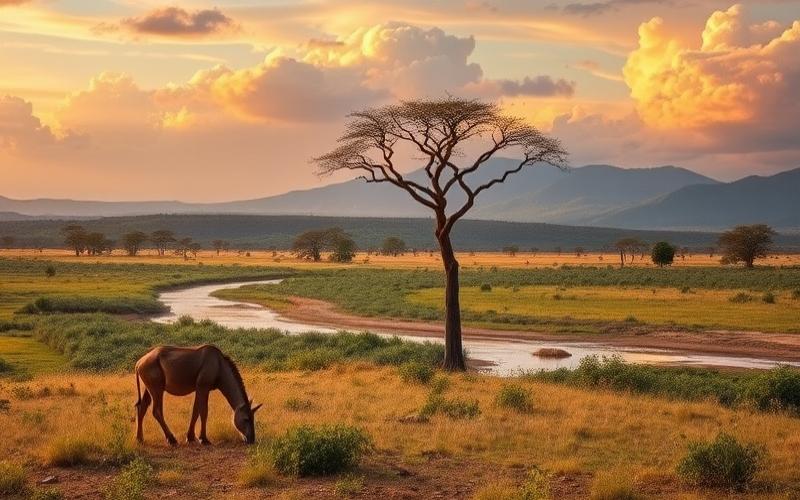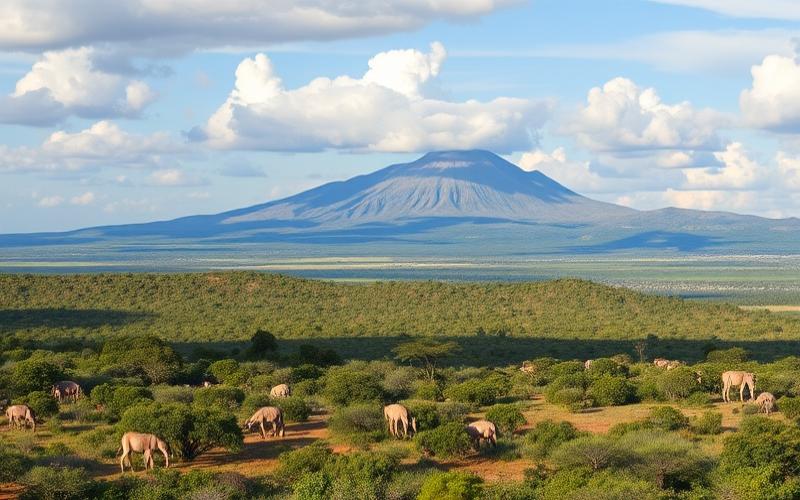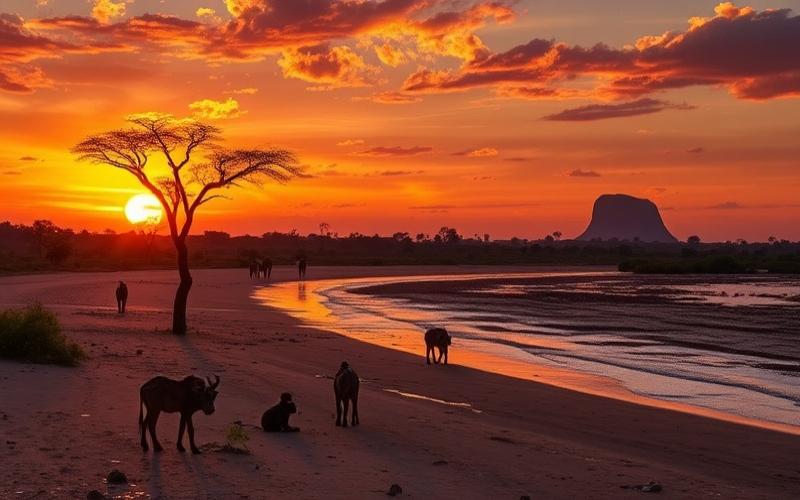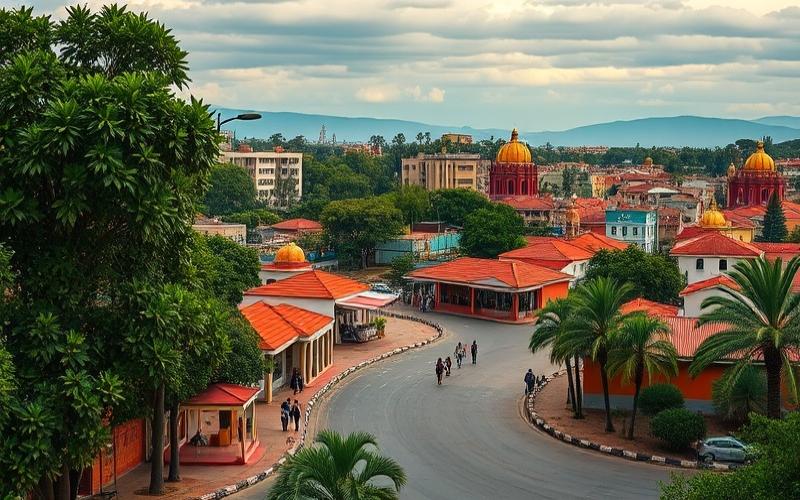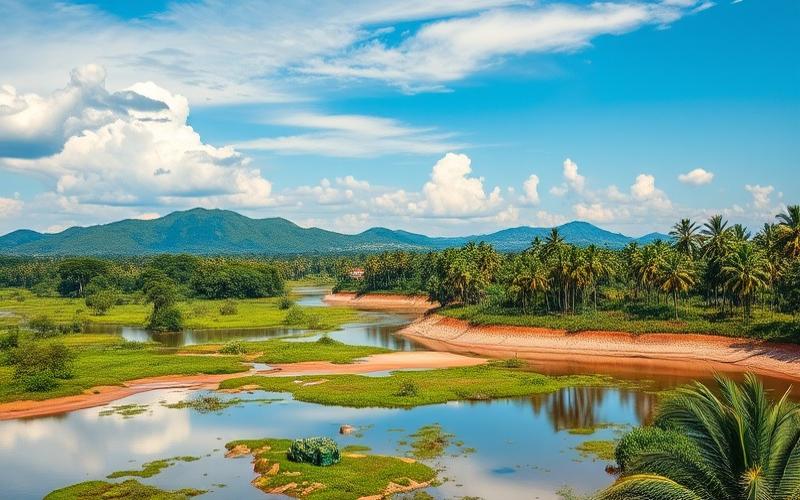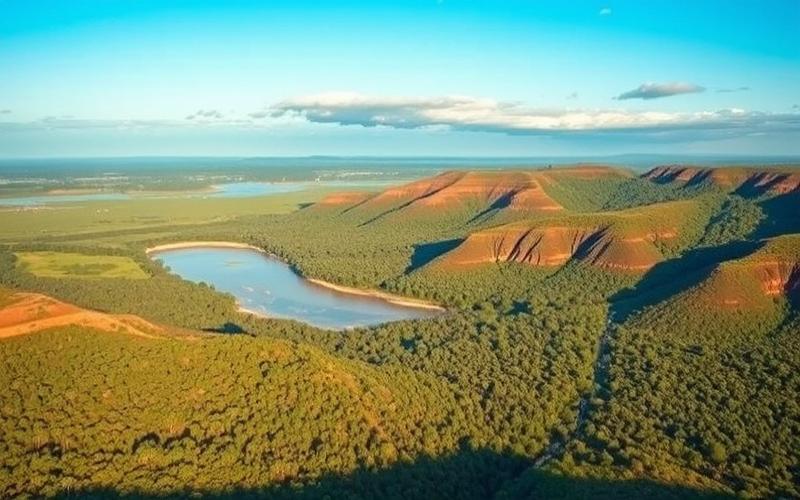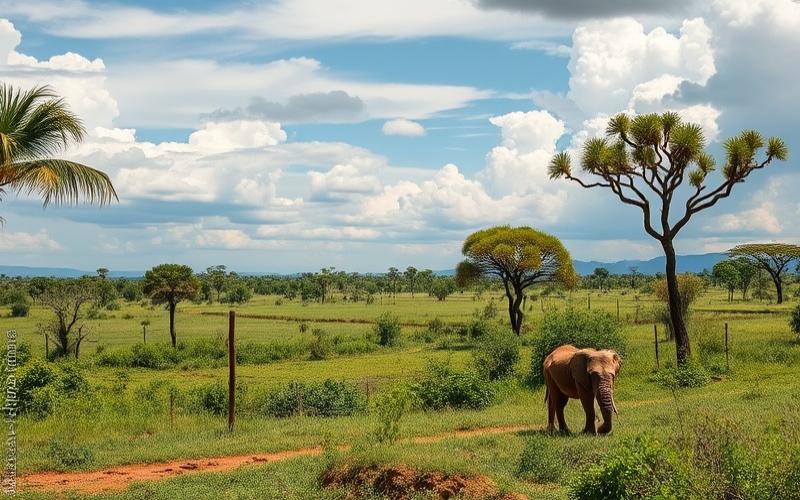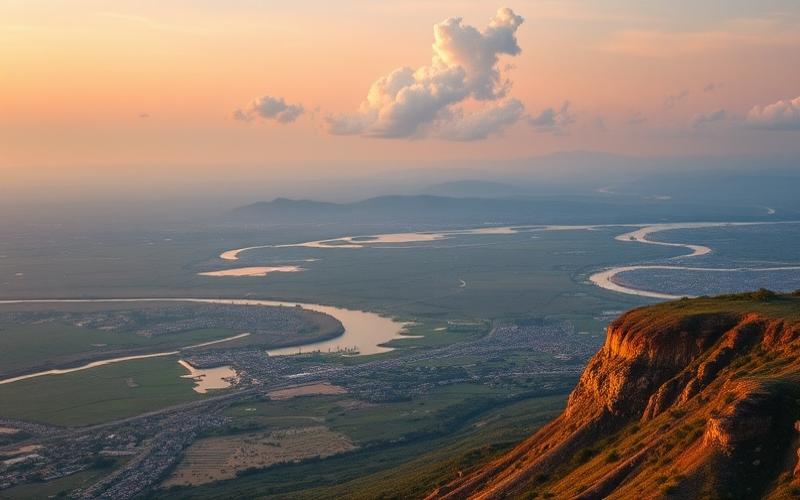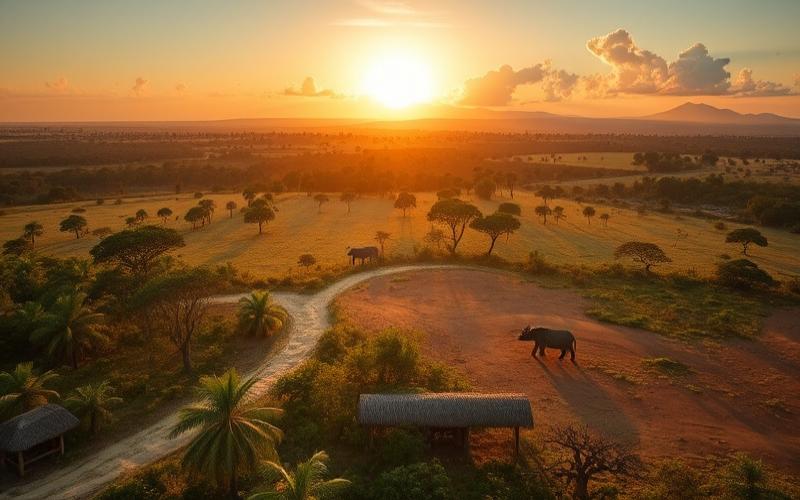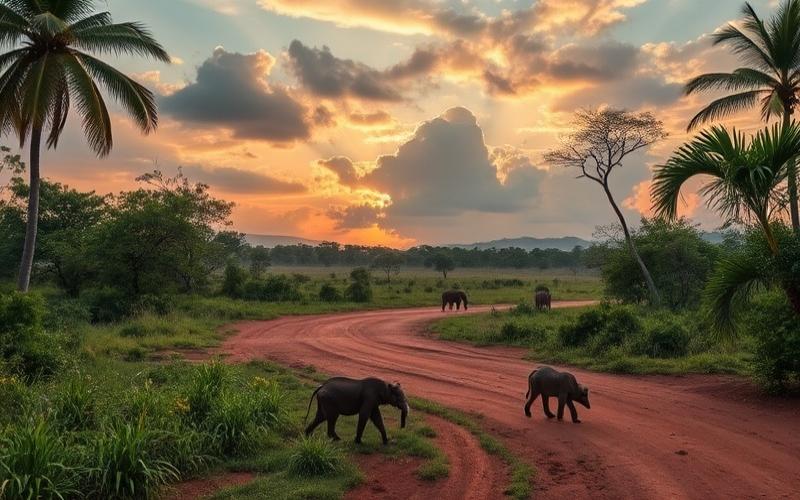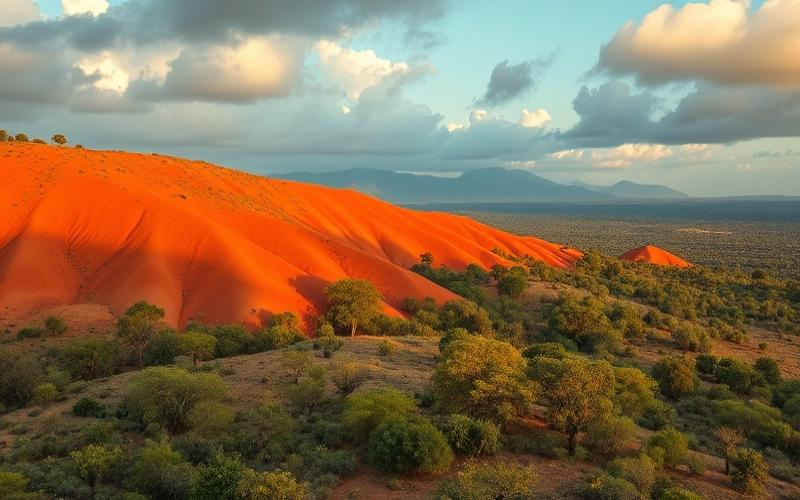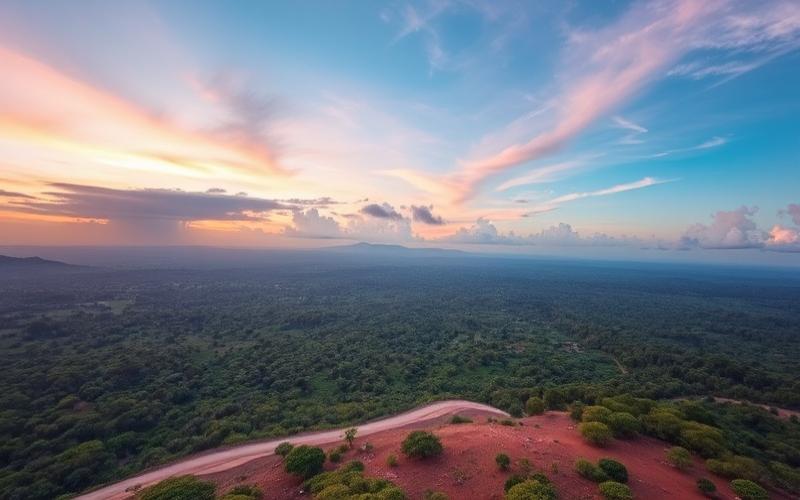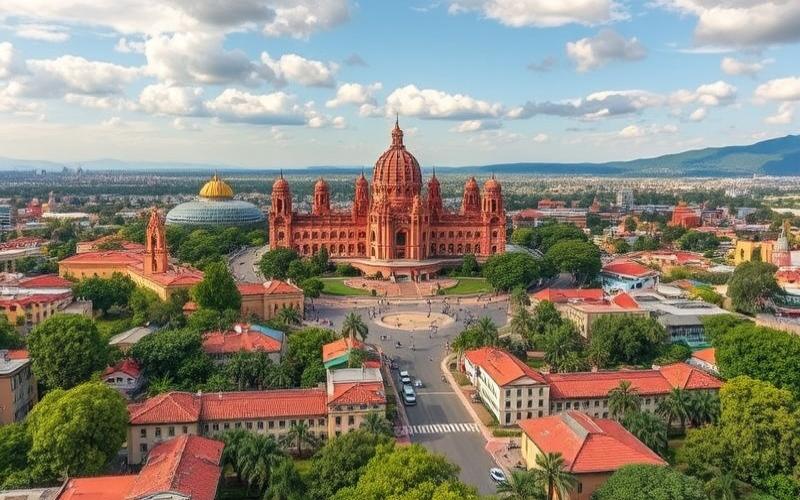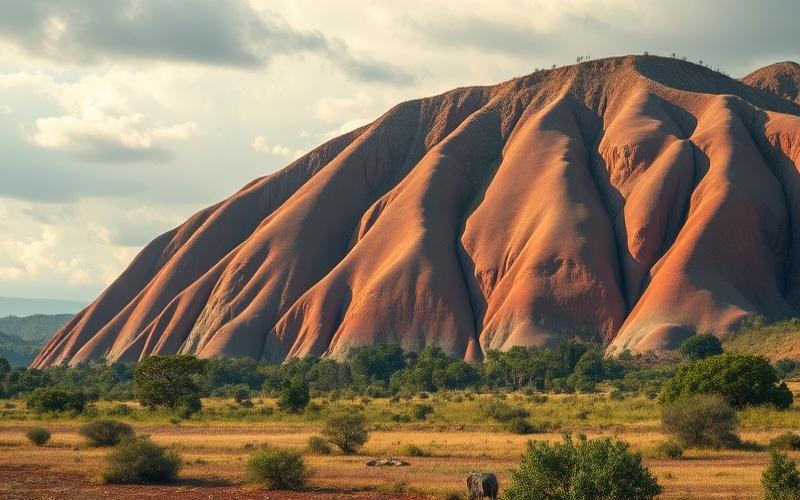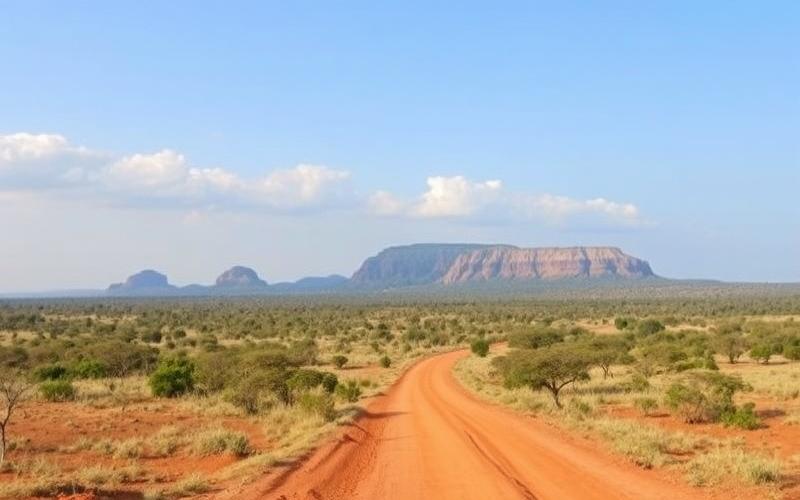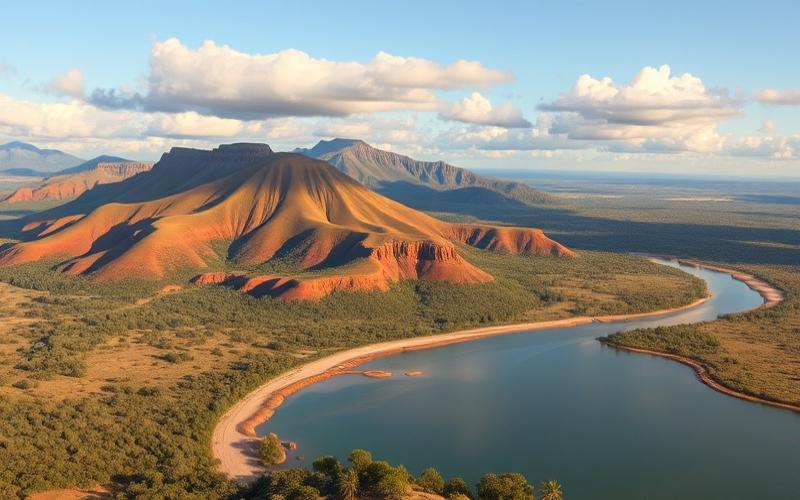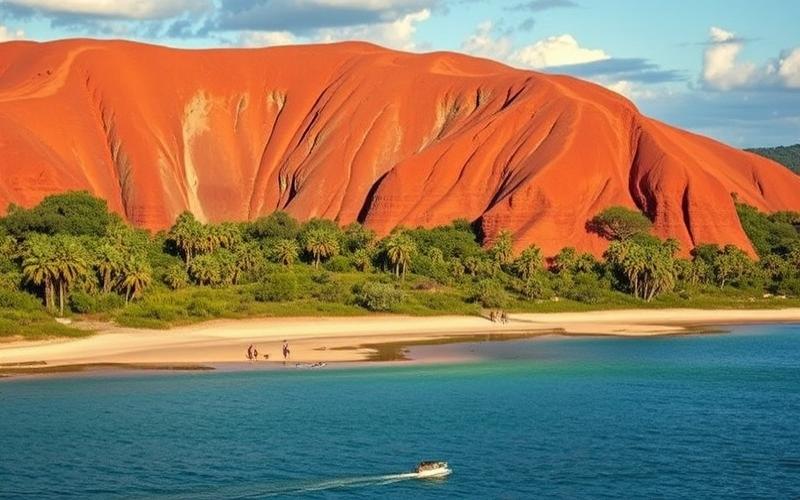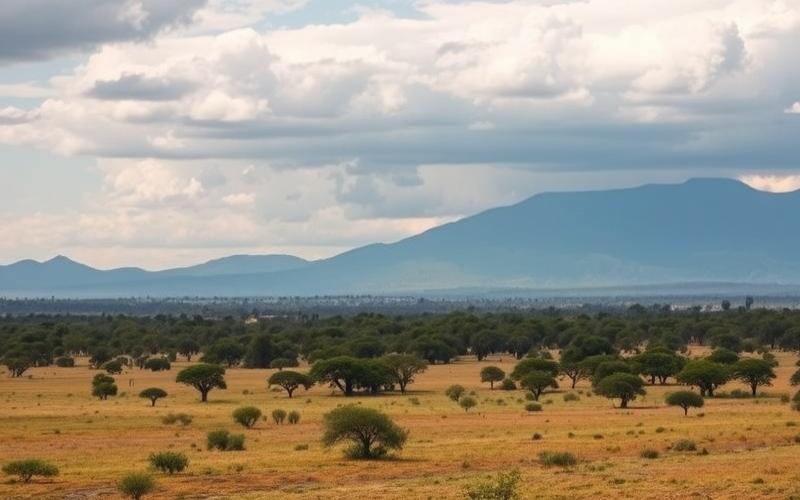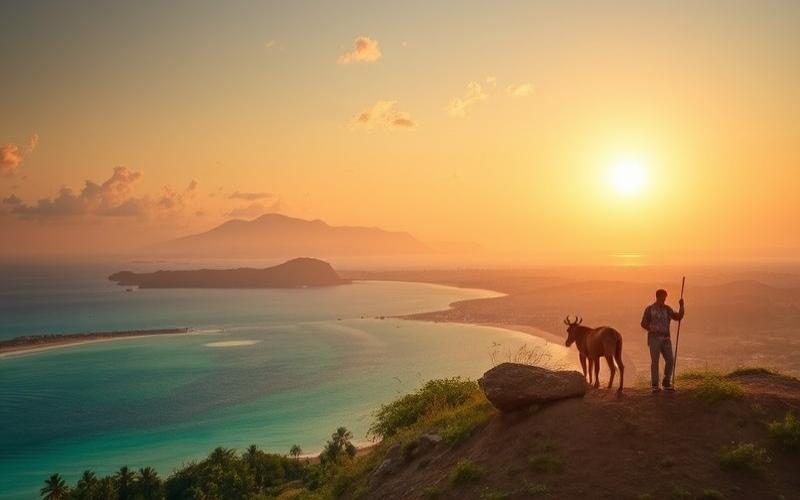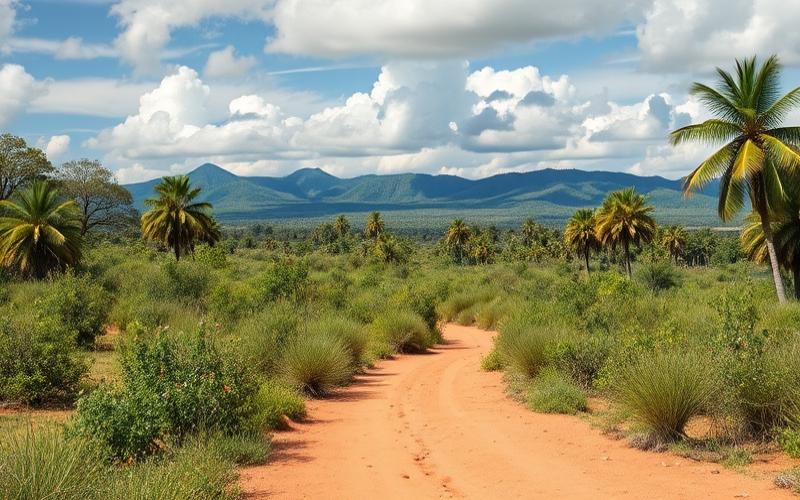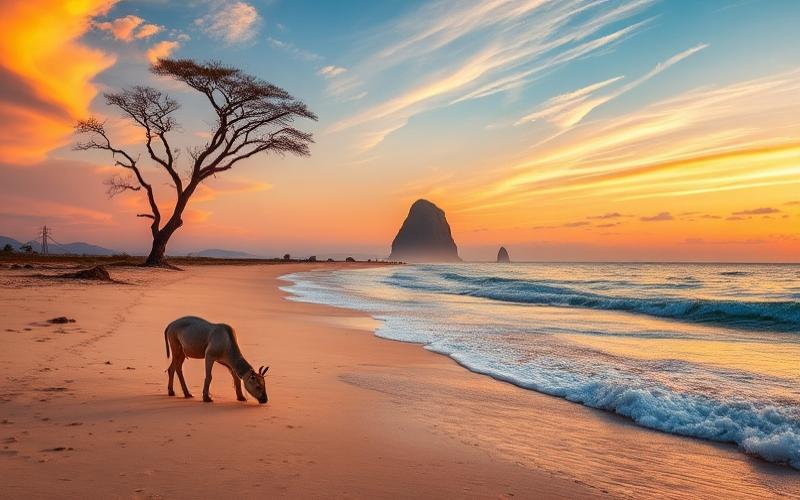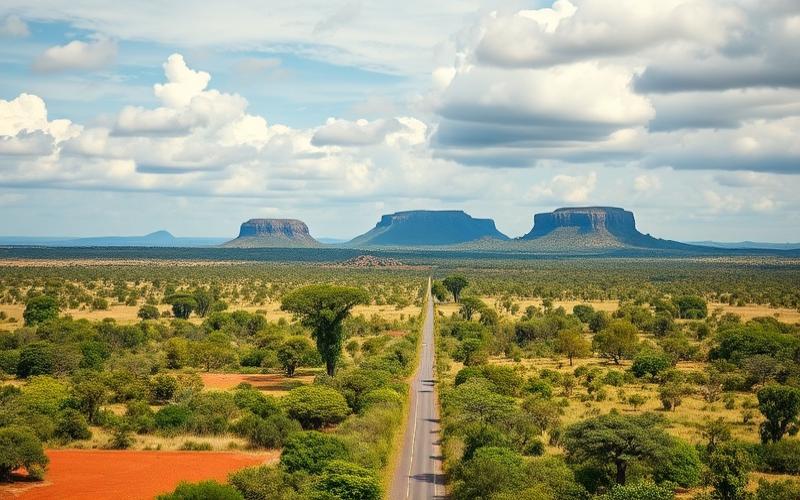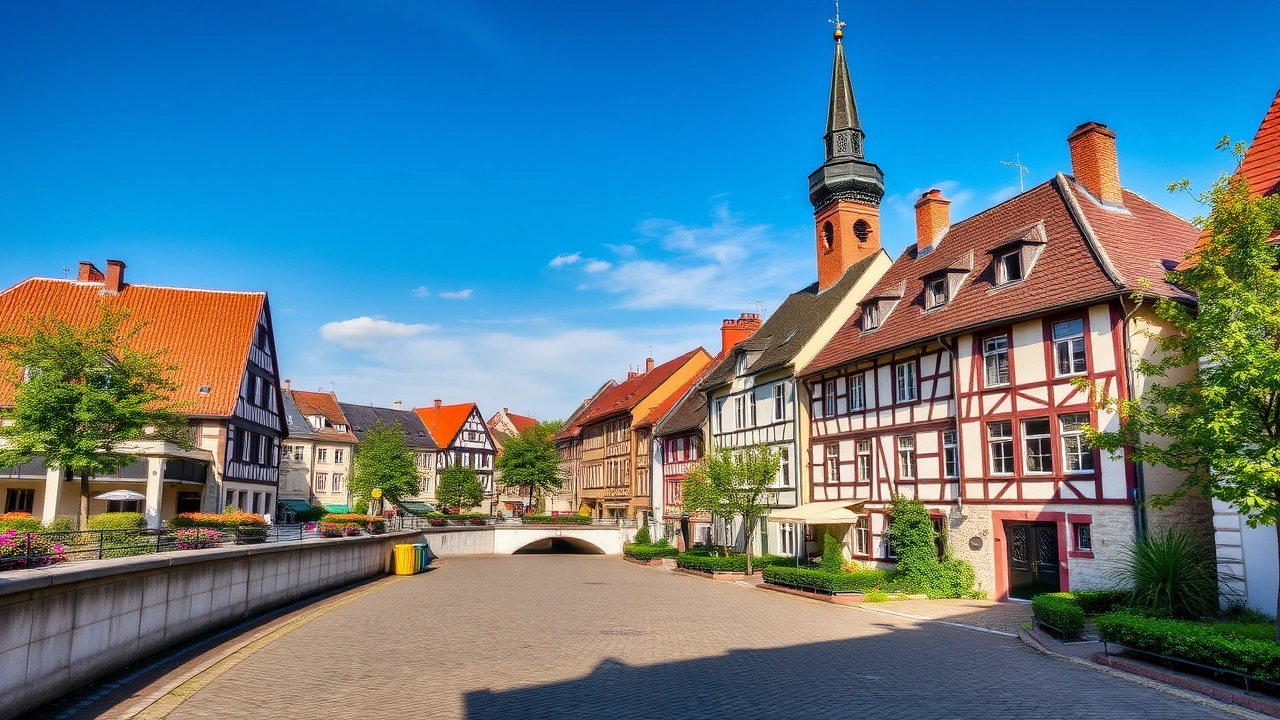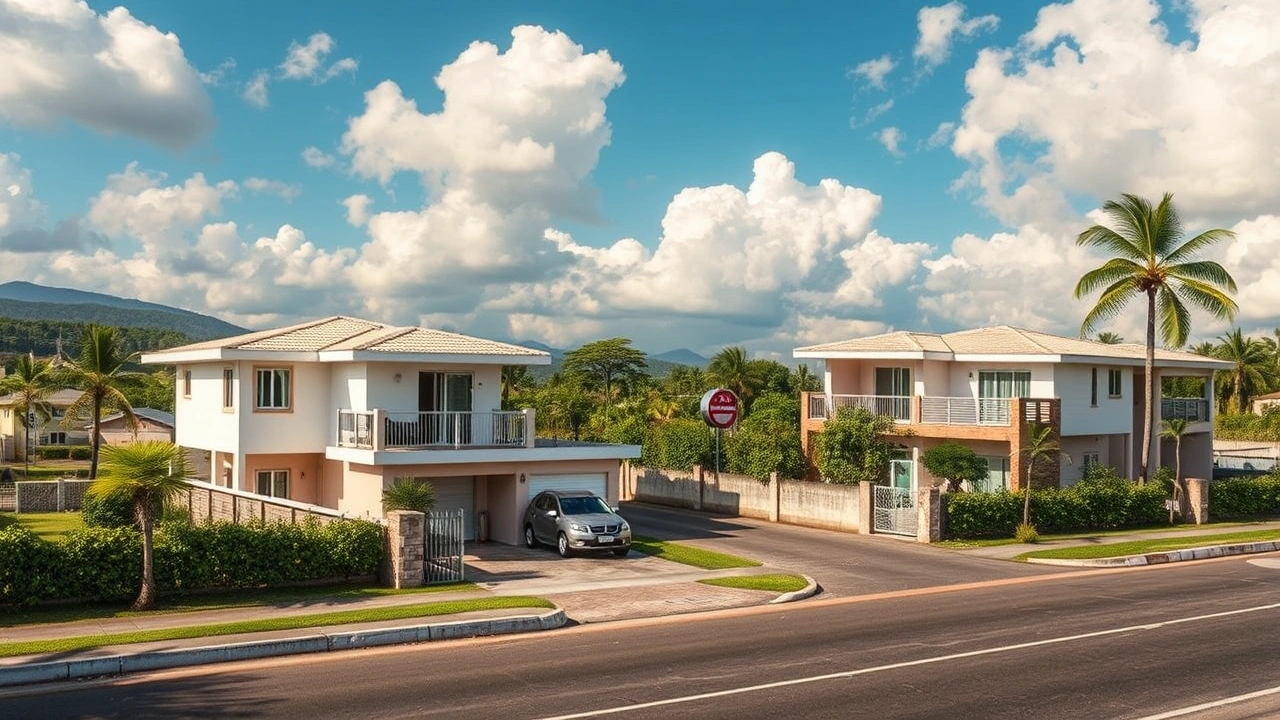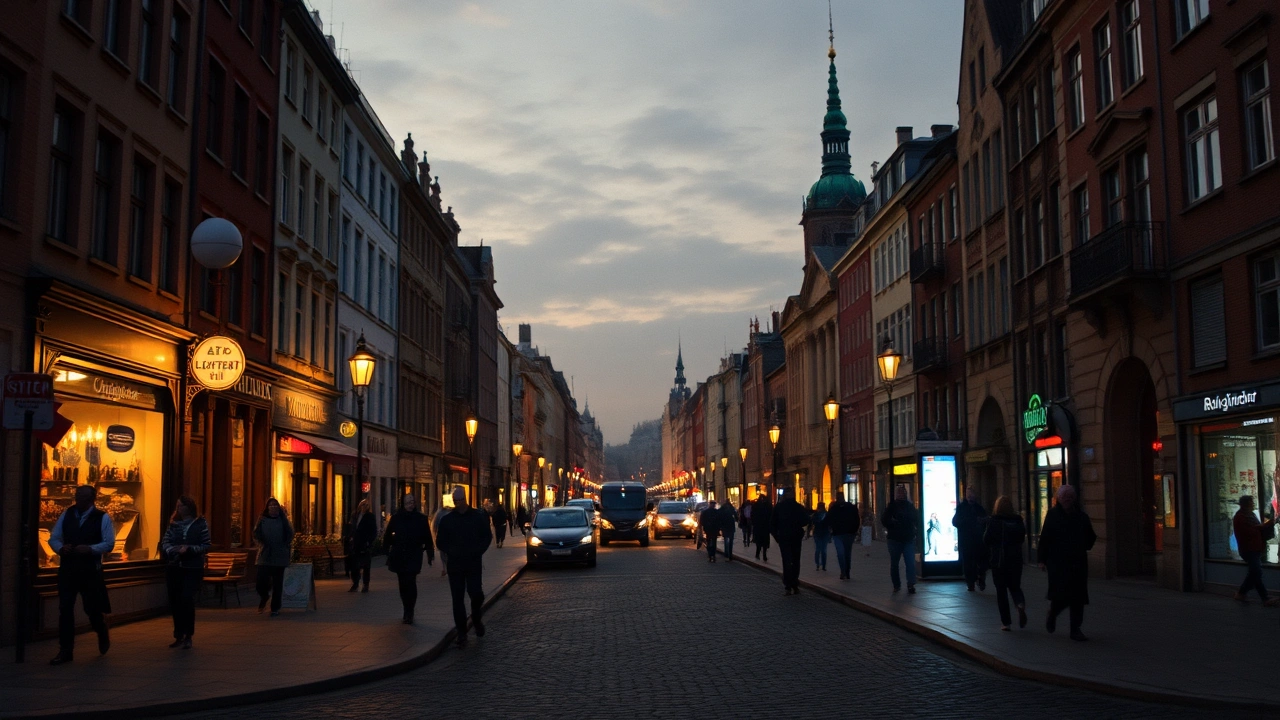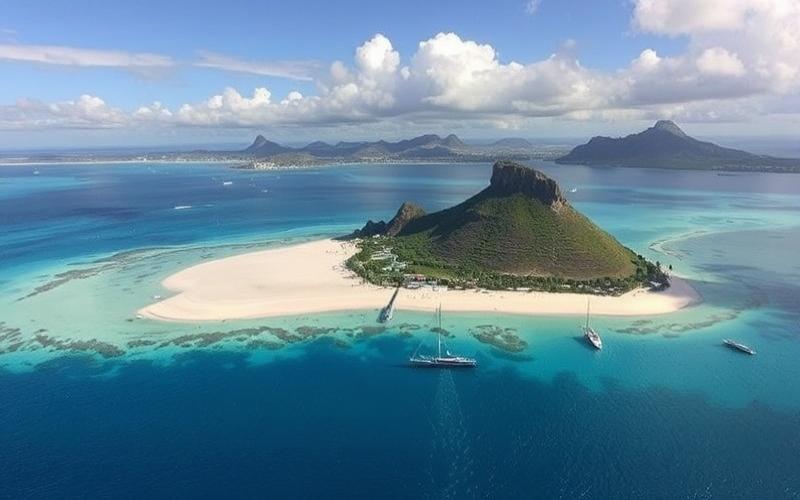
 Published on and written by Cyril Jarnias
Published on and written by Cyril Jarnias
Madagascar: An Ideal Destination for Seniors Seeking Serenity
In a world where many seniors seek peaceful and affordable horizons for their retirement, Madagascar emerges as a destination of choice, blending breathtaking landscapes and an appealing cost of living.
This unique island, rich with exceptional biodiversity and vibrant culture, offers not only an enviable quality of life but also interesting investment opportunities for those wishing to settle there long-term.
Whether acquiring property in the heart of Antananarivo or investing in a seaside home in Nosy Be, Madagascar offers diverse options meeting the economic and asset criteria of future retirees eager to fully enjoy their new life.
Investing in Real Estate for a Comfortable Retirement in Madagascar
Real estate in Madagascar represents an exceptional investment opportunity for senior expatriates looking to prepare for retirement. The sector maintains remarkable dynamism despite recent crisis impacts, attracting more and more foreign investors.
The Malagasy real estate market shows considerable growth potential, with an economy expected to grow at an average of 4.7% between 2025 and 2027. According to Knight Frank, Antananarivo ranks among the top African cities most favorable for real estate investments, offering particularly high returns.
The Most Promising Regions for Investment
- Antananarivo: the capital attracts investments in high-end residential and commercial real estate
- Nosy Be, Sainte-Marie Island, Fort Dauphin, Diego-Suarez and Antsirabe: these tourist areas offer excellent seasonal rental potential
Profitability constitutes one of the main advantages of the Malagasy market. In the capital, annual returns on real estate investments can exceed 10%, well above the 2-3% seen in cities like Paris. For tourist properties, this profitability can even reach 14%, with 90% occupancy rates during high season.
| Property Type | Average Price | Potential Profitability |
| City Apartment | $650/m² | >10% annual |
| Luxury Tourist House (4-6 rooms) | 14% annual (approximately $430/night) |
The market benefits from favorable taxation for foreign investors, with net property income tax rates between 5% and 10%. Transactions are mainly conducted with equity, as real estate loans are uncommon.
For retirees, investing in a tourist house represents a particularly interesting option. These properties can be used as personal residences part of the year and rented out the rest of the time, generating substantial supplemental income.
The property purchase process in Madagascar requires working with reliable professionals. The sector shows remarkable evolution, driven particularly by tourism growth, with over 308,275 international visitors in 2024.
The urban housing deficit, estimated at 800,000 units, confirms the sector’s development potential. Real estate represents over 10% of Madagascar’s GDP ($473 million USD) and constitutes a major employment provider.
“Real estate in Madagascar represents a unique opportunity for investors, with a dynamic market and promising prospects.”
To succeed in your investment, prioritize areas with adequate infrastructure (access to healthcare, commerce, transportation) and consider demographic and urban growth, the main development driver for the sector.
Good to Know:
Investing in real estate for retirement in Madagascar offers interesting potential, particularly in regions like Nosy Be, Antananarivo, and Sainte-Marie Island, where real estate market growth is promising. Expatriate investments can benefit from specific tax advantages, though it’s crucial to consult a local advisor to clarify current regulations.
Retirees often prefer villas or beach houses, with average prices ranging from $54,000 to $162,000, depending on location and amenities. It’s essential to work with reliable agencies and inform yourself about legal aspects related to foreign acquisition to avoid administrative pitfalls.
Prioritize areas offering good access to essential infrastructure such as healthcare, commerce, and leisure activities, which are determining factors for an enjoyable retirement. Testimonials from previous retirees reveal both the benefits of life in the sun and the challenges of cultural integration, emphasizing the importance of good preparation and consulting local experts to ensure successful investment.
The Best Cities for Senior Expatriates in Madagascar
| City | Healthcare Infrastructure | Suitable Leisure Activities | Cost of Living | Expatriate Communities | Climate / Security / Service Access | Real Estate Investment |
|---|---|---|---|---|---|---|
| Antananarivo | Private hospitals, clinics, international pharmacies; presence of recognized medical schools. | Cultural centers, senior clubs, urban parks, international restaurants. | Moderate to affordable depending on neighborhood; areas like Ivandry and Ambatobe are more expensive but secure and close to services. | Strong expatriate community (Ivandry, Ankorondrano neighborhoods) with many local social networks. | Temperate climate at altitude; security varies by neighborhood (prefer monitored areas); easy access to administration and essential services. | Dynamic market in sought-after neighborhoods; villas with gardens offering interesting rental returns for seniors seeking comfort or future resale. |
| Diego Suarez (Antsiranana) | Well-equipped regional hospital center for northern region; developing private clinics. | Water activities (cruises, diving), bay hikes, craft markets suitable for leisurely strolls. | Affordable compared to capital with possibility of spacious housing near sea at moderate cost. | Active presence of European expatriates on La Corniche and downtown: friendly atmosphere among French speakers especially during community events. | Pleasant tropical climate year-round (note frequent winds); city considered safe for foreigners thanks to visible police presence on waterfront. | Attractive real estate: purchase or rental possible in secure seaside residences – high potential for resale or seasonal rental to other retirees or senior tourists. |
| Majunga | Well-maintained main hospital and recent private medical facilities. | Beaches easily accessible from downtown; gentle sports clubs; guided nature outings. | Very affordable even in best neighborhoods; reduced daily expenses outside tourist season. | Small but solid French-speaking expatriate community organized around regular social activities. | Dry climate favorable for senior joint health; good general security outside intense tourist periods; functional public transportation to essential points. | Attractive real estate prices along coastline – good opportunities for houses/small vacation homes near beach with limited maintenance required. |
Why These Cities Are Particularly Suitable for Retirees
- Climate: Antananarivo offers mild weather thanks to its altitude while Diego Suarez enjoys almost permanent sunshine without extreme heat or excessive humidity.
- Security: Areas preferred by expatriates are monitored and often have additional private security measures.
- Healthcare Access: Each city has at minimum a decent general hospital complemented by modern private medical practices in sought-after sectors.
Favorable Municipal/Government Services
- Several municipalities have developed special counters to facilitate administrative setup for foreigners.
- Local programs encouraging foreign investment particularly through simplified land procedures.
Activities & Social Life
Recent multiplication of Franco-Malagasy associations dedicated to “active aging”: memory/cooking/arts workshops reserved for foreign retirees.
Beneficial Real Estate Investment
The market remains promising: acquisition possible starting from several tens of thousands of euros depending on location/property condition.
A well-located home generates attractive rental returns during temporary returns to Europe while guaranteeing a comfortable pied-à-terre suitable for aging.
Important Text
Madagascar appeals as much for its natural setting as its accessible economic opportunities: investing here allows not only for a peaceful retirement in favorable climate but also gradual building of transferable or quickly valuable assets thanks to growing demand among new senior arrivals seeking comfort and authenticity.
Key Takeaways
- Choose Antananarivo if you want to stay close to modern infrastructure,
- Diego Suarez/Majunga/Tuléar ideal if prioritizing seaside location,
- Always check immediate proximity to hospital/pharmacy before any real estate commitment,
- Rely on existing local communities to facilitate rapid social integration,
- Take advantage of recently strengthened tax/migration measures positively welcoming each new senior expatriate!
Good to Know:
If you’re considering spending your retirement in Madagascar, the cities of Nosy Be, Antananarivo and Fort-Dauphin stand out particularly for senior expatriates. Nosy Be, with its tropical climate and soothing beaches, has good healthcare infrastructure and leisure activities such as diving and gentle hikes. Antananarivo, the capital, while more bustling, offers advanced medical care and a dynamic expatriate community network, ideal for maintaining an active social life. Fort-Dauphin stands out for its relative security and natural landscapes conducive to relaxation and walking. The cost of living generally remains affordable, allowing access to quality services without breaking the bank, and each city presents advantageous real estate investment opportunities, promoted by government incentives to facilitate expatriate procedures. These aspects make Madagascar an attractive choice for retirees seeking a pleasant living environment, with good balance between modern comfort and local charm.
Enjoying an Attractive Cost of Living for a Serene Retirement in Madagascar
Madagascar represents a financially advantageous destination for retired expatriates, with a cost of living significantly lower than Western countries. Compared to France, the cost of living is 52% lower, allowing retirees to maintain a comfortable standard of living with a reduced budget.
A single expatriate can live comfortably in Madagascar with a monthly budget of $650 to $1,080, while a couple can manage with $1,080 to $1,620. For a family of four, the monthly budget is estimated at approximately $1,395.50 (6,328,260.7 Ar), excluding rent.
| Expense | Monthly Cost (Single) | Monthly Cost (Couple) |
| Rent (city center) | $216-$405 | $432-$756 |
| Food | $162-$216 | $270-$324 |
| Transportation | $54-$108 | $76-$162 |
| Entertainment | $108-$216 | $162-$270 |
| Utilities | $54-$108 | $86-$162 |
| Health Insurance | $54-$108 | $108-$216 |
Housing options are varied and affordable. A one-bedroom apartment in the city center costs about $405 per month, while the same type of accommodation in the suburbs costs only $119. For a three-bedroom apartment, expect about $756 in the city center and $324 outside. Traditional houses and bungalows are also available at attractive prices, particularly in coastal areas.
Food is very affordable, especially if you prioritize local products and markets. Fresh products are sold at very low prices, and cooking for yourself allows for significant savings. A meal in a local restaurant costs between $2.16 and $5.40, and a local beer can be found for less than one dollar (approximately $0.86).
For healthcare, it’s recommended to subscribe to international insurance, with a monthly budget of $54 to $108 per person. Although medical infrastructure is less developed than in Western countries, major cities like Antananarivo have healthcare facilities adapted for expatriates.
Savings on the cost of living allow retirees to fully enjoy their free time. With an entertainment budget of $108 to $216 per month, it’s possible to afford excursions, cultural activities or travel throughout the island. Many retirees also choose to invest in local projects or engage in volunteer activities.
- Include a safety margin in your budget for unexpected expenses
- Prioritize opening a local bank account to facilitate transactions
- Familiarize yourself with bargaining practices, common throughout the country
- Adapt your lifestyle to local habits to optimize your budget
By adopting a partially local lifestyle while maintaining certain Western comforts, retirees can enjoy a high quality of life in Madagascar for a fraction of the cost they would bear in their home country.
Good to Know:
Madagascar offers an attractive cost of living for retirees, with affordable housing like bungalows or traditional houses, starting at $324 per month, contrasting with European countries where rents are much higher. Food and daily services are also economical, allowing for greater savings compared to popular destinations like Spain or Portugal. In terms of healthcare, medical services are accessible and effective for expatriates, though subscribing to international insurance is recommended to facilitate specialized care. A retiree in Madagascar can moreover enjoy an enviable quality of life thanks to low expenses, leaving more resources for leisure and travel. Testimonials from retirees settled in Madagascar highlight their satisfaction with the friendliness and warm welcome of locals, thus facilitating integration and enriching daily life.
Disclaimer: The information provided on this website is for informational purposes only and does not constitute financial, legal, or professional advice. We encourage you to consult qualified experts before making any investment, real estate, or expatriation decisions. Although we strive to maintain up-to-date and accurate information, we do not guarantee the completeness, accuracy, or timeliness of the proposed content. As investment and expatriation involve risks, we disclaim any liability for potential losses or damages arising from the use of this site. Your use of this site confirms your acceptance of these terms and your understanding of the associated risks.

